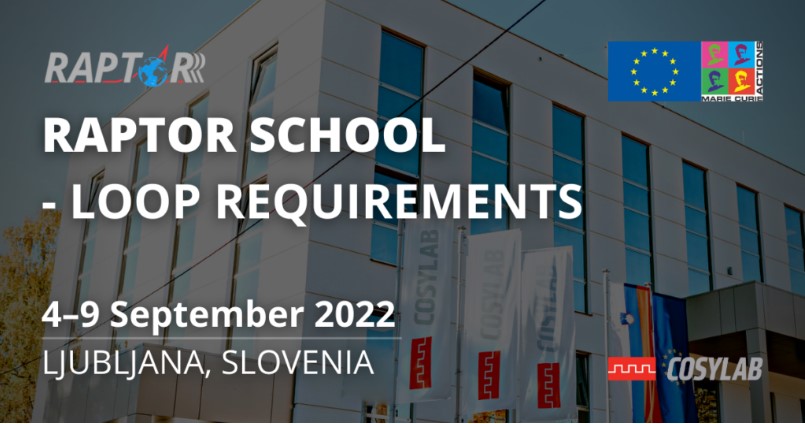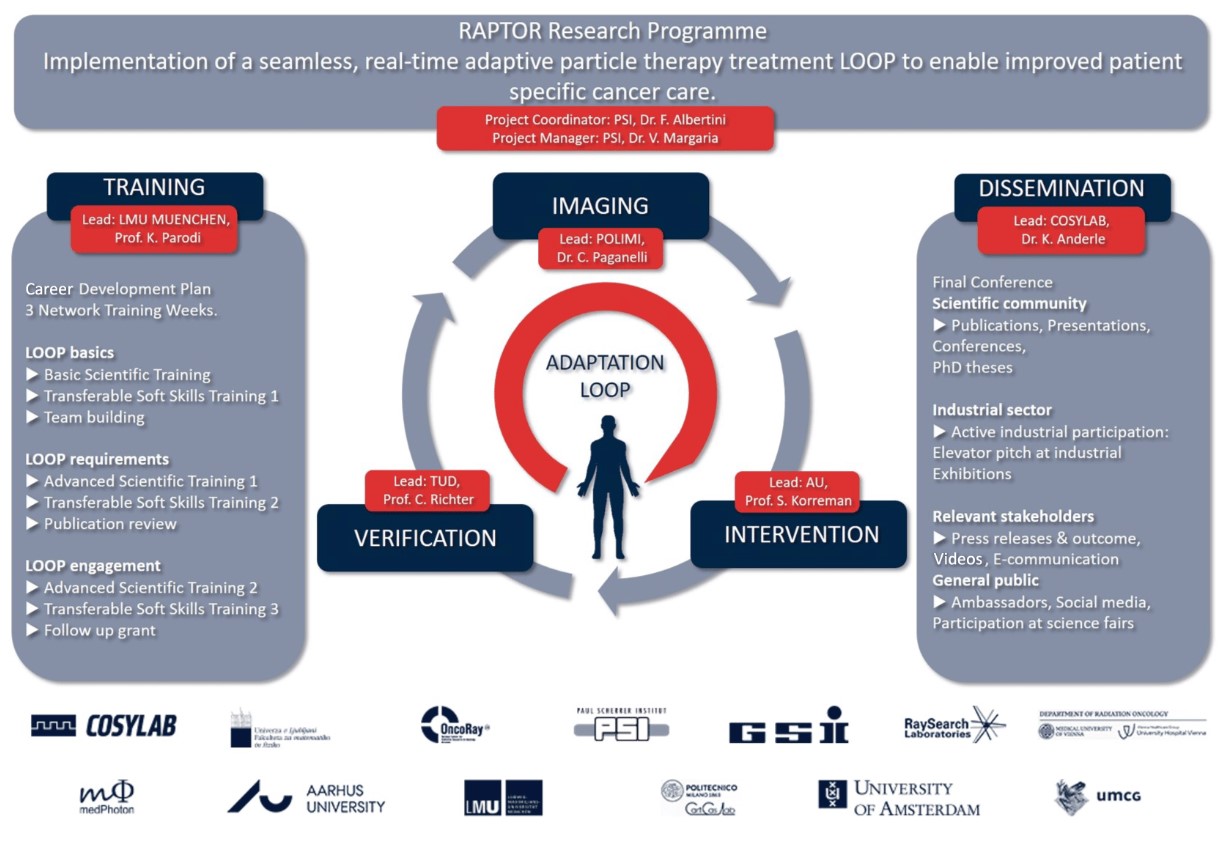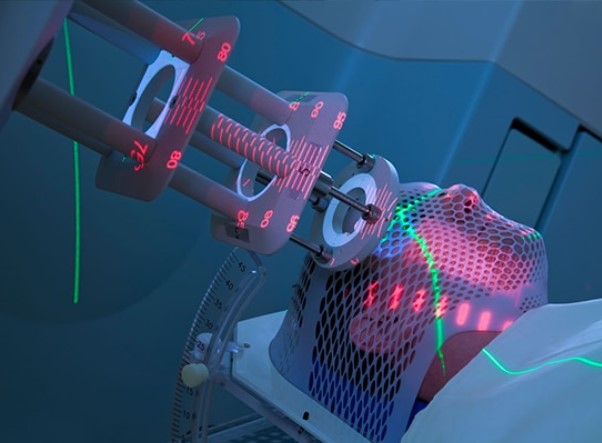The Second RAPTOR School Success Shows the Way Forward for Advanced Adaptive Particle Therapy

The school is part of a more comprehensive project of the same name, the Real-time Adaptive Particle Therapy of Cancer (RAPTOR). The project is financed through the European Union’s Horizon 2020 activity of Marie Skłodowska-Curie and includes 13 research institutions and 15 partner organisations from all over Europe.
The RAPTOR project was conceptualised and started in 2018 by Dr Mark Plesko, co-founder and CEO of Cosylab, Dr Robert Jeraj, professor of physics at the University of Ljubljana and professor of medical physics at the University of Wisconsin-Madison, and Dr Thomas Bortfeld, professor at the Harvard Medical School and head of the Department of Medical Physics at Massachusetts General Hospital, with one main goal in mind, to bring adaptive PT to the clinic. The RAPTOR community first met at Cosylab in 2018 and now returned “home” after four years.
The event was created for a new generation of entrepreneurial and innovative scientists whose work will have a long-term impact on advanced adaptive particle therapy. The latter is a practical and real-time solution for rapidly creating dynamic treatment plans that allow individual changes in patient anatomy. Advanced adaptive PT is the proposition that patients, oncologists and hospitals desperately need in today’s clinical landscape.
While the Second RAPTOR School’s first objective was to expose the PhD students to advanced workflows for real-time adaptive, it also presented a broad front of leading-edge topics, such as AI, machine learning, big data, biostatistics, entrepreneurship, industrialisation and managing intellectual property.
“The network of contributors is extensive, being an interdisciplinary field. The main goal of the 2nd Raptor Science School was to provide advanced scientific knowledge to transfer ideas and concepts for increasing procedural efficiency, cost-effectiveness and rapid innovation in clinical particle therapy. In the foreground is knowledge about artificial intelligence and machine learning because we are talking about advanced imaging and managing big data,“
underlined Dr Katia Parodi, leader of the RAPTOR training program and Professor for Medical Physics at the Ludwig-Maximilians University in Germany.

From Adaptive to Personalised Radiation Therapy
“Compared to conventional radiotherapy with photons – X-Rays, which is well-established and at the same time cheaper, proton therapy is more expensive, but is at the same time more accurate. In the end, it all hinges on the full-treatment costs. To fulfil its full potential, the proton therapy should be constantly adjusted, which means it can be, for instance, significantly affected by whether the patient has a full or empty bladder,”
explained Cosylab’s expert in particle therapy and radiotherapy planning Dr Kristjan Anderle, Chief Scientific Officer at Cosylab.
For some tumours, proton and photon therapy are equally good, but proton therapy is preferred where the tumour is in sensitive parts of the body and for the youngest patients.
The main advantage of proton therapy is undoubtedly a more precise treatment of cancer with radiation, as more energy is delivered to the tumour and less to the surrounding healthy tissue. At a certain depth, depending on the energy of the beam, the protons transfer almost all the energy they carry to the tissue. This point is called the Bragg peak; the same as the entrance dose, the exit dose is minor or even more negligible.
“Currently, we assume the patient’s anatomy does not change during therapy, so we calculate the doses based on one image, the initial computed tomography (CT), and we take this as valid for the entire treatment period. This, of course, is not true because the treatment lasts several weeks, and during this time, alterations in weight, organ position and other changes in the body definitely occur. With online adaptive therapy, we want to change this concept. The idea is to take pictures of the patient daily and calculate and optimise the dose based on this. The ultimate goal is personalised radiation therapy for each patient,”
explained Dr Francesca Albertini, the main coordinator of the RAPTOR project, an expert in medical physics from the Swiss Paul Scherrer Institute.

Five Intensive RAPTOR Days and One Hackathon
From September 4 to 9, 2022, Cosylab proudly hosted the RAPTOR School “Loop Requirements”, an event within the project RAPTOR Consortium. After five consuming and stimulating days of collaboration, 61 registrations, 25 speakers and 20 presented posters, the School culminated in the hackathon challenge organised by Cosylab, which was met with praise by the participants.
“The concluded RAPTOR School — Loop Requirements was an excellent training experience with knowledgeable speakers and the ground-breaking research in daily online adaptation in proton therapy. It had a unique focus on soft fundamental skills for entrepreneurship, motivating the listeners to translate research into products that can be delivered to clinics. Another highlight was the networking between participants from all over Europe and further abroad,“
added Luciano Rivetti, a PhD student at the University of Ljubljana and a RAPTOR early-stage researcher.
One of the RAPTOR Schools’ highlights was a public talk by Thomas (Rock) Mackie, a legend in radiation therapy, titled “Innovations in medical physics” held at the Josef Stefan Institute (JSI).
Dr Mackie noted that the classical fields of radiation medicine are radiology, radiation oncology and nuclear medicine. These are supported by computer science, nuclear physics and nuclear engineering. He discussed innovations related to these areas, such as intensity-modulated radiotherapy — a large-scale optimisation solution — image-guided radiotherapy, targeted theranostics treatment, and fluorescence-guided surgery. He addressed the technical issues and business opportunities associated with all these innovations. Dr Mackie also described the startup-formation stages that could bring these innovations to the Clinical Bed: problem definition, solution creation, intellectual property protection, and stakeholder and investor participation.
Dr Mackie mentioned that Time magazine never highlighted radiation therapy (RT) in its last three decadal reviews of oncology innovations. However, in Dr Mackie’s opinion, precisely RT and early diagnostics have contributed the most to falling cancer mortality rates.
You can watch the entire talk by Dr Mackie at JSI here:
Cosylab, a co-founder of RAPTOR, is excited to be a part of the EU research project that will bring practical and affordable adaptive particle therapy to the nearby clinic. Finally, oncologists will have a real-time system for rapidly preparing dynamic treatment plans that consider anatomy changes in individual patients, with better patient outcomes.
This project has received funding from the European Union’s Horizon 2020 research and innovation programme under the Marie Skłodowska-Curie grant agreement No 955956.
This article reflects only the author’s view. The Research Executive Agency and the European Commission are not responsible for any use that may be made of the information it contains.

